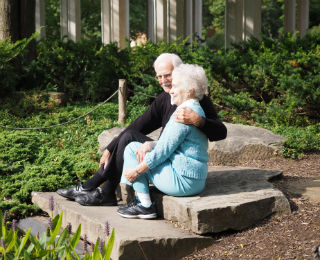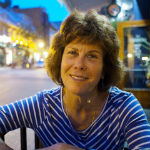Published: October 6, 2015
Written By: Molly Kavanaugh
 Always the pragmatist and planner, my mother in her early 70s put together her ideal “end game.” She moved to an affordable first-floor condo, convenient to friends, medical services and shopping. Her last move, she told everyone.
Always the pragmatist and planner, my mother in her early 70s put together her ideal “end game.” She moved to an affordable first-floor condo, convenient to friends, medical services and shopping. Her last move, she told everyone.
But, alas, like the John Lennon song goes, “Life is what happens to you while you’re busy making other plans.”
Mom died at age 90 in an assisted living facility, following several short-term stays in rehab and nursing facilities. Though not what she planned, she knew her medical needs had grown too great to live alone.
Preparing for Change
Planning for our aging years requires more than a possible change of address. It often means changing our attitudes about the lifestyle and independence preferences we hold dear.
It’s normal to feel confused, vulnerable, or even angry when you realize you can’t do the things you used to be able to do. According to the non-profit website, helpguide.org, the following tips can be helpful for older adults and their loved ones when facing a possible change in living arrangements:
“Be open to new possibilities. Your loved ones may offer suggestions about senior housing options or other ways to make your life easier. Rather than dismissing them out of hand, try to keep an open mind and discuss the possibilities. Sometimes, new experiences and situations can lead to you developing new friendships or finding new interests you’d never considered before.”
Staying at Home with Help
Many older adults are able to stay in their own home with assistance from home care aides. There are thousands of agencies to choose from that offer both medical care, such as physical and occupational therapy, and personal care, such as cooking and cleaning.
Interview several agencies with the help of a list of questions provided by the U.S. Department on Aging.
Other men and women may find the support they need from regular participation in an adult day program, which typically is open weekdays during business hours and may provide transportation to the site.
While nearly half of all participants nationally have some level of dementia, other common chronic diseases among participants include chronic hypertension, physical disability, cardiovascular disease, diabetes, mental illness and developmental disability, according to the National Adult Day Services Association that provides a locator guide by address.
When to Consider a New Home
Sometimes an older adult and/or the caregiver need more support than what can reasonably and financially be provided in the home.
Sometimes the move is temporary. People recovering from orthopedic surgery, injury, stroke and other illnesses often stay in a community that offers short-term rehabilitation services, including physical, occupational and speech therapies. The medical team is focused on helping the patient regain strength and mobility so he or she can return home.
But some older adults have medical and personal needs that are best addressed by moving to an assisted living community for long term care. These vary greatly, from apartment size to wrap-around services, cost and quality. Typically the community offers meals, personal care like bathing, social services and medication management.
A directory of not-for-profit facilities such as Kendal at Oberlin can be found at Leading Age. The Assisted Living Federation of America maintains a more comprehensive list.
A helpful checklist for choosing an assisted living community is available from AARP. Visiting the campus is important, and it can be helpful to make several visits at different times and on a weekday and weekend, to get a true feel for the place.
What is Skilled Nursing?
Older adults who require more extensive medical care may need to move to a skilled nursing facility, either short or long-term. These facilities, which provide around-the-clock skilled nursing care, are licensed, inspected and regulated by a state’s health department.
Medicare provides a list of all Medicare and Medicaid certified nursing homes in the country. The directory also includes ratings pertaining to inspections, staffing and overall quality.
 Written By: Molly Kavanaugh
Written By: Molly Kavanaugh





